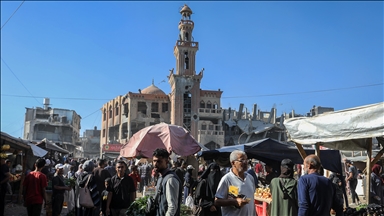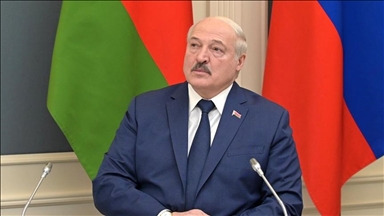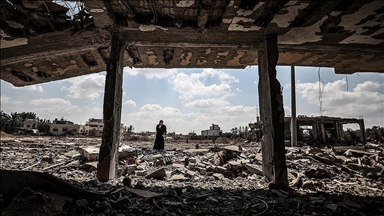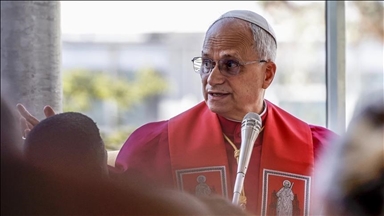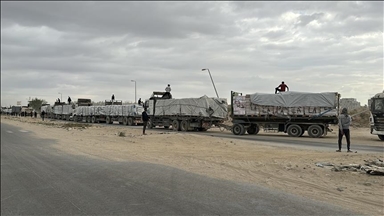OPINION - Letters that never reach Gaza: The oldest instrument of solidarity
The systematic blackout of communication and absence of postal connection in Gaza is not merely a technical breakdown but a collapse of one of humanity’s oldest instruments of solidarity
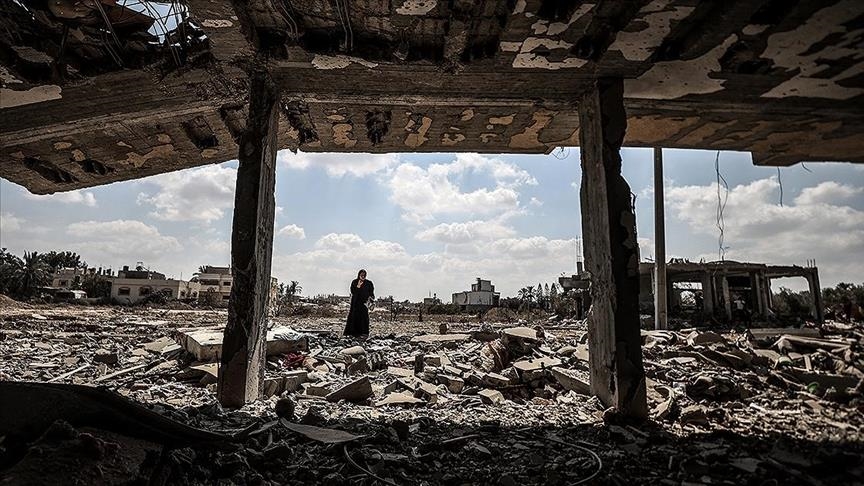
- The author is a political analyst.
ISTANBUL
There are wars that silence voices, and there are wars that silence even the attempts to speak. Gaza endures both. Once, a letter could cross borders as proof of life – a fragile thread linking those inside to the wider world. A daughter could write to her father, a mother to her son, a young man to his beloved, a student to a friend abroad. The envelope was carrying more than just words, it was carrying recognition, presence, the quiet assurance that someone knew you existed.
Today, even that thread has been cut. Post offices lie in ruins, mailbags lie empty, and hands that once reached for letters now grasp nothing. In Gaza, lives are being extinguished, and the possibility of acknowledgment is buried with them. The absence of postal connection is not merely a technical breakdown but a collapse of one of humanity’s oldest instruments of solidarity.
The idea of the universal network
International postal institutions were established to ensure that communication endures even when borders close or conflicts erupt. The Universal Postal Union (UPU), PostEurop, and the Postal Union for the Mediterranean (PUMed) all share a mandate to uphold what is called "universal service": the right of every individual to send and receive correspondence, regardless of geography or politics.
This principle is not symbolic. It is written into the UPU Constitution and operational regulations, obligating member states to facilitate cross-border services without discrimination. The logic is simple: even if political agreements falter, humanity's need to connect must remain protected. In moments of crisis, the postal system is expected to bridge divides, not reflect them.
The collapse of Gaza's postal system
Since October 2023, Gaza has been reduced to rubble on an unprecedented scale. Over 64,500 people have been killed, entire families erased, and nearly 2 million people have been displaced, seeking shelter where none exists. In this environment, the collapse of postal services may appear secondary, yet it is deeply revealing.
Fuel shortages have halted sorting machines. Bombs have destroyed offices and facilities. International mail has been blocked on security grounds. Parcels of food, medicine, or money cannot reach intended recipients. Even remittances, the fragile bridge between hunger and survival, have been frozen. What emerges is not just infrastructural destruction but a systematic blackout of communication. In a society under siege, the absence of postal services means not only the loss of goods and messages but also the erasure of recognition. To be unreachable is, in a sense, to be invisible.
From an operational perspective, alternatives could have been explored. Coordination through Jordan or Egypt, the establishment of emergency dispatch corridors, and the activation of the UPU’s Emergency and Solidarity Fund are all mechanisms that exist within the international framework. None have been implemented.
The failure here is not only logistical. It reflects a gap between institutional mandates and institutional responses. Gaza’s position within the postal order, which is observer status for Palestine and full membership for Israel, illustrates how structural asymmetry influences decisions, emergency activation, and the allocation of support. What appears technical is, in practice, deeply consequential.
Selective solidarity and its implications
Comparisons are instructive. When war disrupted postal services in Ukraine in 2022, the UPU acted quickly: it recognized postal services as essential infrastructure, mobilized emergency funds, and appealed to the global network for solidarity. The message was clear: Communication was a lifeline, not a luxury.
In Gaza, no such mechanisms have been activated. There has been no emergency funding, no coordinated logistics, no appeals for solidarity. The silence is striking. Whether intentional or not, the result is the same: Some conflicts are met with institutional mobilization, others with quiet omission.
Silence, however, is not neutral. In global governance, silence has weight. It signals priorities, shapes precedents, and sets expectations for future crises. Inaction in one context may weaken obligations in all contexts. If universal service is conditional, it is no longer universal.
Institutional inaction
PostEurop, which spoke strongly for Ukraine, has not addressed Gaza. PUMed, designed to strengthen regional cooperation, has issued no statement. The absence of public communication not only reflects passivity, but it also creates a record in which Gaza does not appear. In global networks, omission functions as erasure.
This erasure carries consequences beyond Gaza. It undermines the credibility of postal institutions, weakens the principle of non-discrimination, and risks reducing universal service to a flexible slogan rather than a binding obligation. Trust in international organizations rests not only on what they say, but on whether they act consistently when the principles are tested.
To retain credibility, international postal institutions must treat Gaza's postal blackout not as a peripheral issue, but as a test case for their own relevance. A number of steps could be taken, each already supported by existing mechanisms:
- activation of emergency funds under the UPU’s solidarity mechanisms,
- coordination of alternative routes through Egypt, Jordan, or other partners to enable minimal communication flows,
- systematic data collection and publication on postal disruption, including human impact metrics, so that the scale of erasure is documented rather than denied,
- explicit commitments by the leadership of UPU, PostEurop, and PUMed to uphold universal service principles regardless of political status.
These measures would not restore normal postal activity, but they would reassert the idea that even in crisis, communication is a right worth defending. The feasibility of each step matters less than the willingness to attempt them.
Conclusion
As the UPU convened its 28th Postal Congress in Dubai on Sept. 8-19, bringing together the postal community and shaping the future of international postal cooperation, representatives of 192 member states discussed resilience, innovation, and inclusion. Yet only a short distance away, Gaza remains cut off from the possibility of sending or receiving a letter.
The postal system has always been more than logistics. It is a reflection of human dignity, the assurance that one can reach beyond isolation, that recognition can survive borders and conflict. When letters cannot reach Gaza, the cost is not measured only in missed parcels or delayed remittances. It is measured in the erosion of universality itself.
For international postal institutions, the challenge is not only technical but moral: to act in a way that justifies the world "universal" in their mandates. If they fail, it is not only Gaza that is cut off, but the credibility of the system as a whole.
* Opinions expressed in this article are the author's own and do not necessarily reflect Anadolu's editorial policy.
Anadolu Agency website contains only a portion of the news stories offered to subscribers in the AA News Broadcasting System (HAS), and in summarized form. Please contact us for subscription options.


